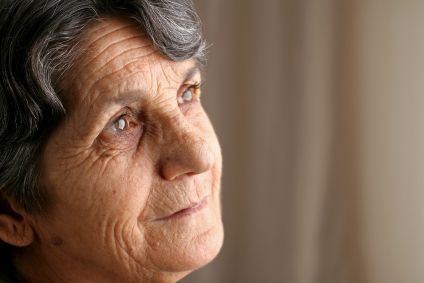Do you take care of someone in your family with a chronic medical illness or dementia? Have you felt depression, anger or guilt? Has your health deteriorated since taking on the responsibility of caregiving? If your answer is yes to any one of these, you may be suffering from caregiver stress.
This condition is increasingly being referred to as “caregiver syndrome” by the medical community because of its numerous consistent signs and symptoms. In the pamphlet, “Caring for Persons with Dementia,” Dr. Jean Posner, a neuropsychiatrist in Baltimore, Maryland, referred to caregiver syndrome as, “a debilitating condition brought on by unrelieved, constant caring for a person with a chronic illness or dementia.”
An increasing number of Americans are finding themselves taking care of someone who’s aging or ill or both. According to the American Academy of Geriatric Psychiatrists, one out of every four American families cares for someone over the age of 50. As America’s population ages, that number is expected to skyrocket. In 2000, the Census Bureau reported, just under 35 million Americans were 65 or over; by 2030, the number is projected to more than double, to more than 71 million.
Many exhausted, ill caregivers today don’t seek help because they don’t realize that they have a recognizable condition. According to a report from the National Consensus Development Conference on Caregiving, the most common psychological symptoms of caregiver syndrome are depression, anxiety and anger. Peter Vitaliano, a professor of geriatric psychiatry at the University of Washington and an expert on caregiving, said that the chronic stress of caring for someone can lead to high blood pressure, diabetes and a compromised immune system. In severe cases, caregivers can take on the symptoms of the person that they care for, he said. For example, a person caring for someone with dementia may develop progressive memory loss. Worse still, this syndrome can lead to death. Elderly caregivers are at a 63 percent higher risk of mortality than noncaregivers in the same age group, according to a study by University of Pittsburgh researchers Richard Schulz and Scott Beach reported in the Journal of the American Medical Association in December 1999.
Vitaliano suggests that the physical symptoms are a result of a prolonged and elevated level of stress hormones circulating in the body. He likened exhausted caregivers’ stress hormone levels to those suffering from post traumatic stress disorder.
Caregivers are usually so immersed in their role that they neglect their own care, said Vitaliano. The stress is not only related to the daunting work of caregiving, but also the grief associated with the decline in the health of their loved ones. The majority of caregivers go through a period of shock followed by a major adjustment in their roles. Such emotions are reflected in online discussions among caregivers such as one at the Alzheimer’s Association Online Community. A number of spouses described their role slowly evolving from partnership into a nurse-patient relationship. The caregivers described the difficulty of the change and talked about feeling anger, resentment and guilt. They also suggested that in such an emotional state, it’s difficult to provide high-quality care to their loved ones.
Physicians, too, are not always certain how to approach the issues raised by long-term caregiving. Although the term “caregiver syndrome” is widely used among allied health professionals such as hospice workers and nursing home assistants, the syndrome is not yet recognized in American medical literature. Without that official validation, it’s not surprising that this problem is not addressed more by physicians. A survey in the American Academy of Family Physicians found that fewer than half of caregivers were asked by their doctors whether they had caregiver stress. Vitaliano believes that more research should be done to help spread awareness.
But Vitaliano isn’t sure giving caregiver syndrome the status of an official diagnosis would be a good thing. He argues that if “caregiver syndrome” were listed in the Diagnostic and Statistical Manual of Mental Disorders (a text published by the American Psychiatric Association that defines all mental health disorders) it could stigmatize those that have it. “Caregiver stress is directly related to the way our society views the elderly and the people who care for them,” Vitaliano says. Today, caregiving is viewed largely as a burden in this country. If it were viewed as more of a societal expectation and people were willing to offer more support, fewer caregivers would suffer in isolation, he says.
Others think giving caregiver syndrome an official name would be helpful. Kathryn Anderson, a researcher in families and chronic illness at Florida International University, argues that caregiver stress should be named a syndrome because it would help caregivers seek the help and resources they need. Naming it a syndrome would encourage health professionals to develop better treatment strategies and require health insurers to pay for treatment, she believes.
For now, the American Academy of Family Physicians and the National Center on Caregiving call for every caregiver to be screened for stress and depression. Caregivers who show signs of hostility, anxiety and a loss of interest in activities they used to enjoy are urged to talk to their doctors.
Experts agree that expanding the caregiver support system, finding sources of help for caregiver tasks and educating caregivers can significantly decrease the occurrence of this syndrome.
Source: CNN, article by Andree LeRoy, M.D.

